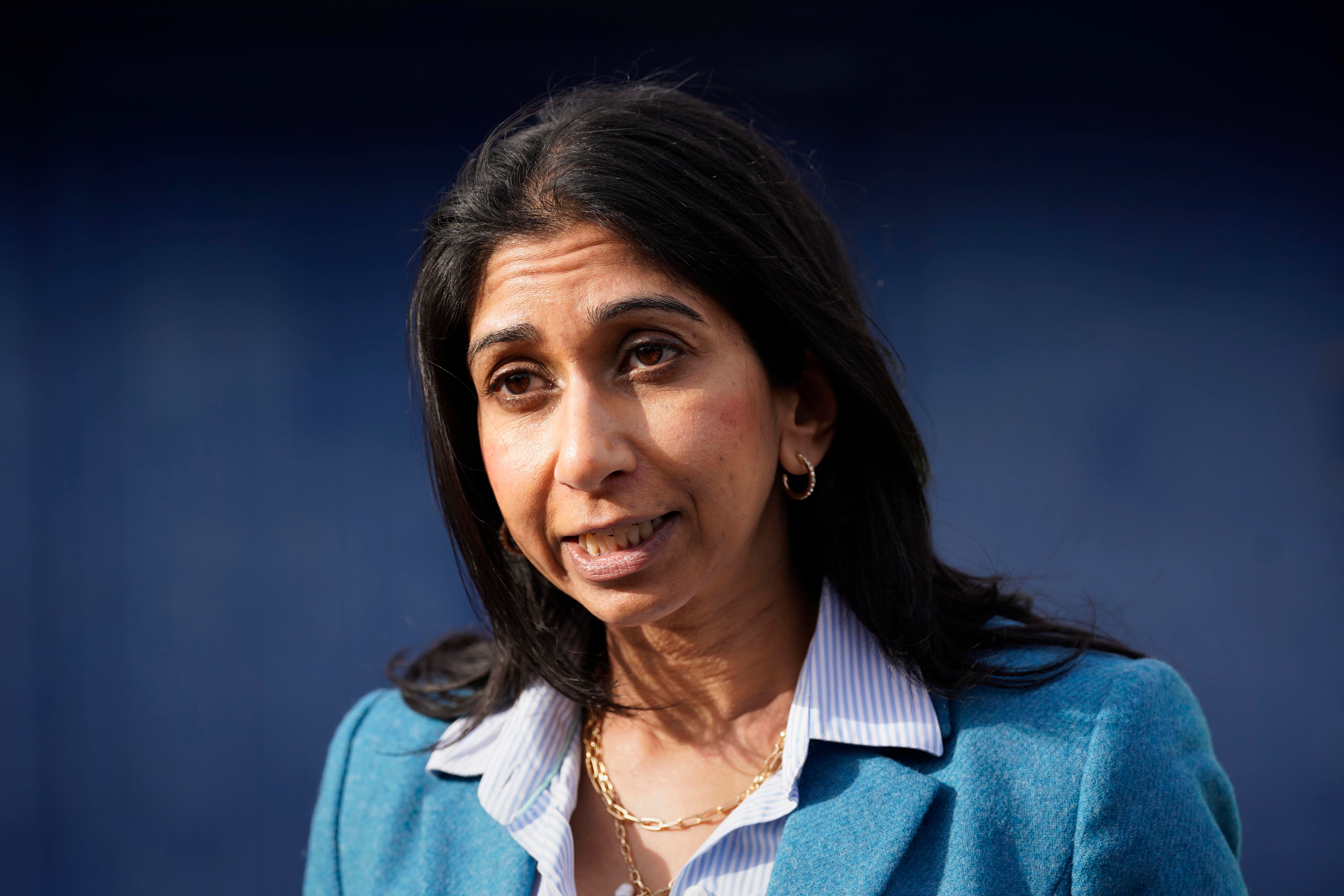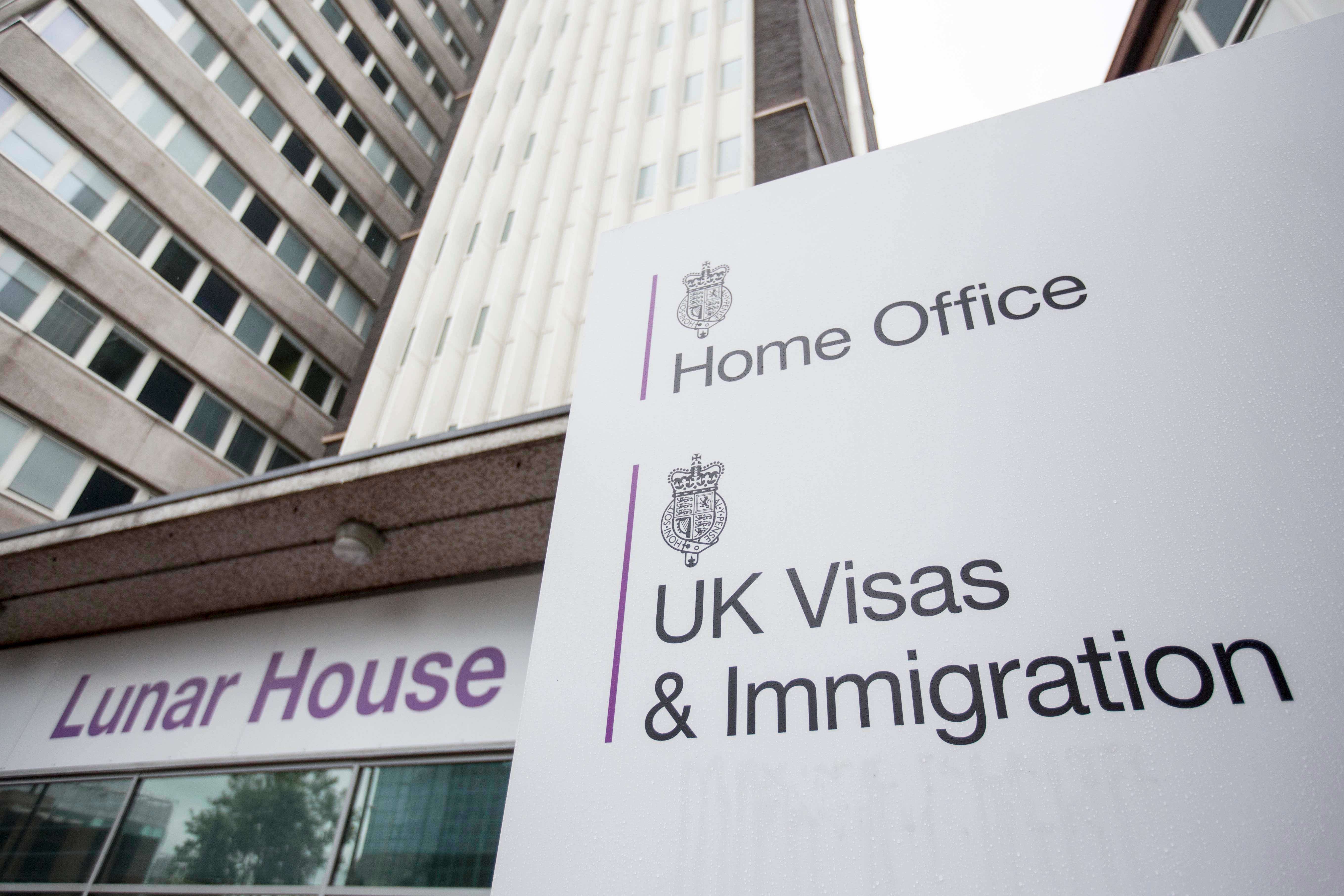
A grandmother threatened with deportation has won the right to remain in Britain after a six-year battle with the Home Office, The Independent can reveal.
Susita Balasubranamiamm, 66, was ordered to return to Sri Lanka – leaving behind her children and grandchildren – after the government said her recently-retired husband Shanmugham, 74, no longer met the required income threshold.
The woman’s husband was granted refugee status by the Home Office in 1994 after fleeing persecution for being part of the Tamil ethnic group. Their four children joined him in the years that followed and were also given refugee status. Ms Balasubranamiamm joined them in 2014 on a spouse visa.
Though he had contributed towards his pension and saved personal funds, Home Office immigration rules say the sponsor must be able to show an employment income of £18,600. The pair argued they were financially supported by their children but this was rejected.
Now, following two applications to renew her visa, two appeals against the Home Office’s refusal and a grant of permission to appeal to the Court of Appeal, Ms Balasubranamiamm has been granted permission to stay in the UK.
“I am so relieved finally that I have received justice. I had sleepless nights, deteriorating health and so much anxiety being in constant limbo all because of the insensitivity of the Home Office,” Mrs Balasubranamiamm told The Independent.
“My husband worked for decades in the UK, has a pension and our children and grandchildren are all settled and financially responsible, yet because of my husband retiring by the time I had to renew my visa and the inflexibility of the rules I had to spend years fighting to get justice so I could peacefully enjoy the rest of my life.
“During this time I felt I was being punished because my husband had to retire, but with the help of my lawyer, I finally got the justice I had always felt strongly in my heart. My lawyer was an incredible support for me, not only taking my case to the Court of Appeal to fight, but keeping me comforted and motivated day or night whenever I felt like I was losing hope.”

The elderly couple have been living with their 35-year-old son and his family, helping to look after their grandchildren as is tradition within their Tamil culture.
However, when Mrs Balasubranamiamm applied to renew her visa in 2016, the Home Office refused it on the grounds that her husband, who previously been employed as a food factory manager, no longer earned enough because he had retired.
During the first appeal in November 2018, a judge said they did not accept that the couple’s son could support his parents financially and concluded there was nothing to prevent Mrs Balasubranamiamm and her husband from living together in Sri Lanka or to stop the children visiting them there, according to court documents seen by The Independent.
A second appeal in 2021 found that the grandmother’s first appeal should not have been blocked and, in October 2022, the Court of Appeal ordered that the decision should be reconsidered by the home secretary.
The Home Office then wrote to Mrs Balasubranamiamm in February 2023 stating that she has been granted permission to stay in the UK.
Prior to this victory, the grandmother felt very “anxious” about being deported and told The Independent at the height of her struggles in 2019: “I am not well. I feel I can’t go back. My whole family is here – my husband, children, and grandchildren. No one is there. I won’t have anyone there to take care of me there.”
Solicitor Naga Kandiah, who represented Mrs Balasubranamiamm, pointed to multiple failings on the Home Office’s part.

“The first reflection point on this case is the insensitivity of the immigration rules to expect an individual to continually work beyond their retirement age in order to satisfy the income threshold,” he told The Independent.
“Furthermore, at such an age it is understandable that one would like to live a stress-free life and in light of the circumstances that the applicant has grown children who are settled in the UK and can support their parents, this raises illogical barriers by segregating elderly parents from their families in times when they require this the most.”
Mr Kandiah added: “If sent back to Sri Lanka, the unreasonable expectation upon an elderly lady to financially support and fend for herself without her family, is certainly a blind spot for the Home Office in making such a decision.
“Notwithstanding, the damage incurred to the rights of the husband, children and grandchildren of being deprived of their right to family life with their respective wife, mother, and grandmother, is another issue.”
The Home Office has been approached for comment.







